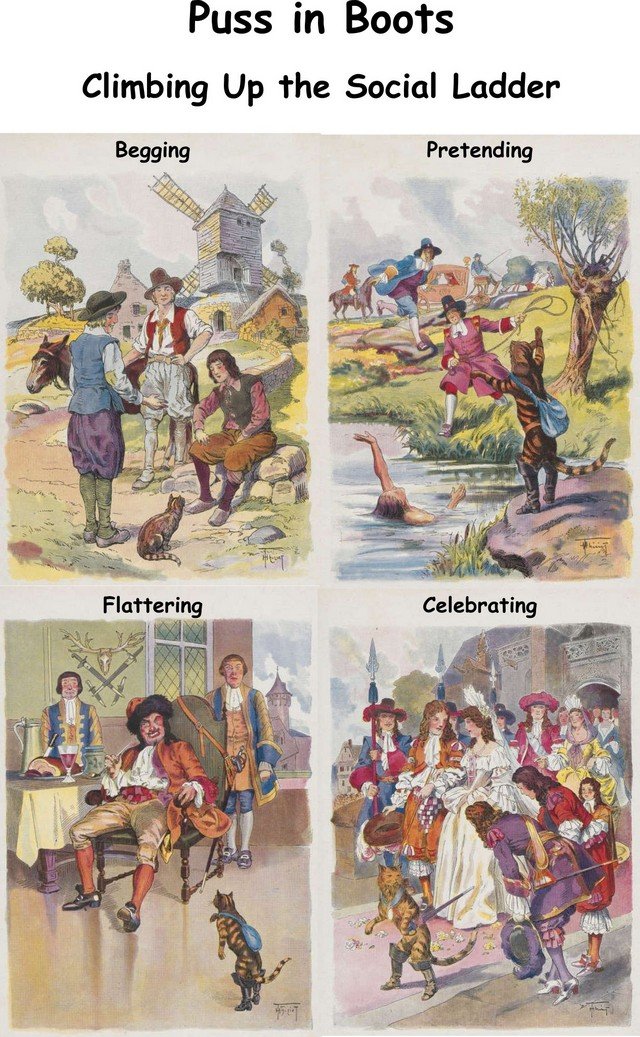Puss in Boots - His Personal Evolution
Puss in Boots differs from other classic fairy tales by its iffy title character. While most of the other classics feature humans in leading roles, Puss' master doesn't really do anything crucial here except for sparing Puss' life at the beginning of the story. All other characters (except for an ogre) are humans as well, yet Puss proves to be the most industrious and smartest of all.
Puss starts in the role of some kind of consolation prize. Older brothers inherited useful stuff and the younger got the cat. His initial idea was to skin it, so he could at least have a pair of gloves, Puss convinced him to spare his life.
In exchange, Puss starts a series of actions by which his master becomes popular with the king, earns his respect and admiration, and eventually marries his daughter, the princess. At the same time, Puss climbs up the social ladder as well. From an unimportant cat, he becomes a representative of an imaginary nobleman, from apparent wealth creates true real estates, and in the end guarantees himself a position at the court.
He achieves that by stealing, lying, scheming, and flattery, and doesn't stop before he becomes a murderer as well. In the end he is rewarded.

The messages of Puss in Boots are, mildly saying, questionable, and you can read more about them here:
https://owlcation.com/humanities/puss_in_boots
Even if you know about the origins of this fairy tale, which was written in France by Charles Perrault, leaning on Giambattista Basile's story from The Tale of Tales (both writers being very much involved in the inside affairs of courts where appearance is worth more than any other value, or if we rephrase it - appearance is the only value) and could be traced centuries ago to an old Persian story, not exactly the kind of fairy tale to instill moral values of your kids, right?
Other fairy tales are different from this point of view. It's much easier to explain the consequences of Fatima's curiosity in The Bluebeard (https://steemit.com/bluebeard/@tolovaj/what-makes-the-story-of-bluebeard-so-controversial) or the sacrifice of Belle in Beauty and the Beast (https://steemit.com/beauty/@tolovaj/short-summary-of-beauty-and-the-beast) than the resourceful and treacherous behavior of Puss. Maybe it could do with an explanation of Puss' intuitive powers (based on the understanding of how this world works, really) to find a weak point in any character he comes in contact with. Everybody has his own vice. One responds to flattery, the other to threats. Even master's mercy is used to Puss' full advantage. But do we want to teach our children how to become an exploiter?
Anyway, Puss in Boots makes a very important contribution to world literature by simply showing that no starting point is not so bad (in this case, Puss' and his master's), it could not be improved to very satisfying achievements. Life is not fair, but you can (and should) still make the best of it.